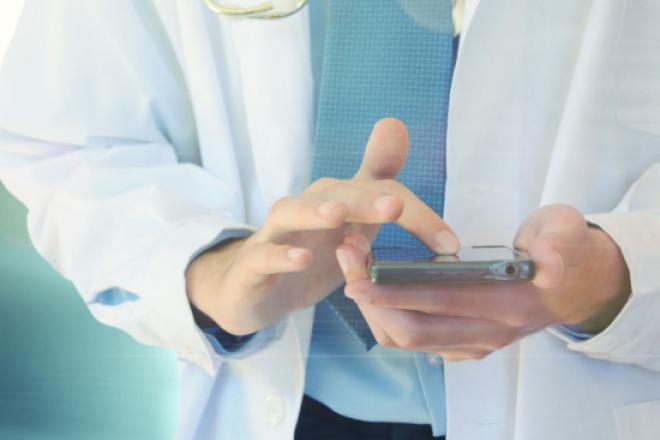In an increasingly digital world, healthcare organizations of all sizes must meet the ever-changing demands of today and tomorrow. Small and large medical facilities are incorporating mobile health technology (mHealth) to cut costs, increase revenue, and improve patient experiences and outcomes. Whether your practice does in-home or telehealth visits or your providers use their mobile devices to share patient information, you must ensure data security. Mobile healthcare solutions that are HIPAA-compliant and have standard controls can be used to address regulatory requirements, including privacy and anti-fraud measures.
What is mHealth?
mHealth, or mobile health, describes when mobile devices are used in healthcare delivery. A relatively broad term, mHealth can include when patients message their providers with questions about their care, physicians exchange patient information or treatment strategies via their mobile phones or tablets, and more. mHealth practices can also be used for remote monitoring of blood pressure and other conditions, communication and training for healthcare workers, out-of-office patient care, and preventative healthcare education.
The use of mHealth technology accelerated because of the COVID-19 pandemic, but its prevalence will only increase worldwide due to the more widespread use of smartphones. By 2025, global mHealth markets are expected to exceed $330 billion, an increase of more than 1,400% from 2016, according to Statista.
Ready to incorporate mHealth into your healthcare organization’s operations? Contact us to get started.
What are the benefits of mHealth technology?
Why is mHealth growing globally? There are many reasons, including patient convenience, ease of provider access, coordination of care, and better delivery outcomes. According to the Pew Research Center, more than 80% of Americans own a smartphone, including 83% of adults aged 50 - 64 and 61% of those older than 65. Offering mHealth as part of your organization’s healthcare services enables you to meet your patients where they are, on the devices they frequently use throughout the day. There are other benefits of mHealth technology, including:
Streamlined Communication
Most adults use their mobile phones frequently. By offering a secure mHealth service, your organization will make collaboration between all stakeholders much easier. Patients can use their smartphones to ask questions about their care, physicians can exchange critical patient data that can help them coordinate care, and testing labs can efficiently share information with all care team members. The availability of information can lead to better-informed medical decisions and long-term health outcomes for patients.
Accessibility of Patient Data on the Go
Information is critical in healthcare. When your providers visit patients in their homes or outside your facility, they may not have all the data they need to make decisions. This can cause a substantial amount of wasted time on phone calls, and care decisions can be delayed until the provider returns to the office where the required records are kept. With mHealth technology, patient information is available no matter where your providers are, empowering them to deliver the best care in or out of the office.
Improved Patient Experience
For patients, having their care team accessible through their mobile phones can help make them feel seen and cared for. With a mHealth solution, they won’t need to wait until their in-person appointment to get answers to questions. Adjustments in prescribed medications, queries about side effects, and more, all without having to go out of their way to come in. It’s better to ask a question than not address an issue at all, and with a mHealth platform, patients can get what they need without even opening a computer.
Fewer devices in healthcare means better collaboration. Here's why.
How Mobile Healthcare Solutions Can Help Your Organization
Mobile healthcare solutions streamline communication between patients and providers while improving outcomes and reducing wasted time and revenue. Here’s how you can nail down the right mobile healthcare solution for your organization:
Secure, Scalable, and HIPAA-Compliant
Patient privacy is vital, but finding a HIPAA-compliant solution that delivers on-site and hybrid cloud phone systems and communications solutions is difficult. Look for a solution that provides common controls your organization can use to address regulatory requirements, including security and anti-fraud measures.
Access to Medical Records from Anywhere
Next-generation cloud platforms make medical records and patient data available from anywhere. This allows on-site medical teams to collaborate with providers in the field, keeping everyone informed and enabling the highest standard of care. The availability of information allows for improved patient experiences throughout the entire lifecycle.
Increased Reimbursement Rates
Efficiency leads to revenue. For healthcare organizations, mobile access to healthcare solutions improves patient communication, responsiveness, and information access, which can help ensure better Hospital Consumer Assessment of Healthcare Providers and Systems (HCAHPS) scores. Higher HCAHPS scores lead to higher reimbursement rates.
Accelerate Income Flow & Reduced Operating Costs
Online billing capabilities that shorten accounts receivable timelines, click-to-chat and click-to-call capabilities in patient portals, and reduced response times contribute to improved income flow. Look for a healthcare communications system that brings everyone together within your organization, reducing operating costs via unnecessary follow-ups and allowing providers to focus more on their patients.
Get Your mHealth Solution Today
Regardless of the size of your healthcare organization, you need a high-performing, on-site, and cross-device communications solution to modernize your operations and provide excellent patient experiences.
Contact us when it’s time to elevate your healthcare organization’s operations. Our mHealth solutions offer the highest degree of security and flexibility, allowing you to deliver enhanced patient experiences, provide better care, streamline workflows, and improve communication for all stakeholders.
